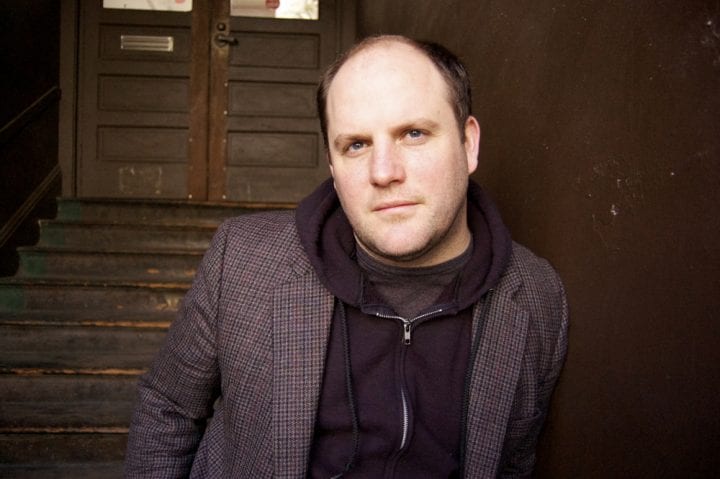
WITS Voices: Ten Years with WITS
February 20, 2018
By Peter Mountford, WITS Writer-in-Residence
I have now entered my tenth year of teaching WITS, and I’m taking a look back. Specifically to my first residency at the TOPS school with teacher Lori Eickelberg’s 8th graders in the spring of 2008. Two years out of my MFA program, I was hard at work on a manuscript that would become my first novel, A Young Man’s Guide to Late Capitalism, which came out in 2011.
I had some experience teaching, but not a lot. Of course anyone who starts anything starts with no experience, but floundering as a teacher is a uniquely painful experience. Being terrible at writing is easy, the failure is private. I still fail as a writer all the time, but then I can either fix the writing or throw it away, and there’s something nicely private about it.
But anyone who has ever stepped into a classroom filled with 30 rambunctious 8th graders and attempted to teach them something—or even hold their attention for a full hour—will tell you: bombing in a classroom is a living nightmare. A lot of WITS writers start in Lori Eik’s class, and I’ve often wondered if it’s a sort of trial by fire.
In my first meeting with her, Eik—as she’s often called—a no-nonsense woman with her white hair cut short, waved a hand gruffly and said, “Ah, I’d just chuck a couple prompts at them the first day, and see what you can get—it’s a good group, but kind of rambunctious. So just do something quick and dirty, it’ll be fine.”
I had no idea what she meant. I mean, I understood the words she was saying, but what did that look like in the classroom?
I went home to my fiancé, a high school English teacher, and asked her for some guidance, and she looked at me with pity. She knew me. And she knew 8th graders, and she knew I was going to get obliterated. “A lot of teachers quit after the first year,” she said. “Some last three years, but then there’s another wave of jumping ship. It’s just…” she winced.
That semester with Eik, I learned a lot in the classroom, probably a bit more than my students did. They talked while I talked, I noticed, and ignored me, and I realized that if I stopped talking and looked at them with a smile on my face they would then stop talking, too. And then they would look back at me and listen. That took me a few weeks to figure out. I also noticed that if I wore a bright scarf and bright tennis shoes and told jokes that were a little sharp-edged—“The cafeteria smells like it’s been doused in Axe body spray, I need goggles when I’m near it or my eyes burn…”—the kids regarded me with interested amusement. They paid attention. They could write for 15 minutes, I realized, and when 3/4 of them stopped writing, I needed to shift gears, or else I’d lose the room altogether.
Now, I still teach 8th graders through WITS, now at Blue Heron School in Port Townsend. And I wear a bright scarf, and I never sweat when I’m up in front of a class. If I somehow finish the day’s lesson twenty minutes early, it’s not a problem: I can always chuck a quick prompt at them, and watch their minds bend into the page as their imaginations take over.

Peter Mountford’s debut novel A Young Man’s Guide To Late Capitalism won the 2012 Washington State Book Award in fiction. His second novel The Dismal Science was published in 2014. His work has appeared in the Atlantic Monthly, Granta, the New York Times Magazine, Best New American Voices 2008, Boston Review, and elsewhere.